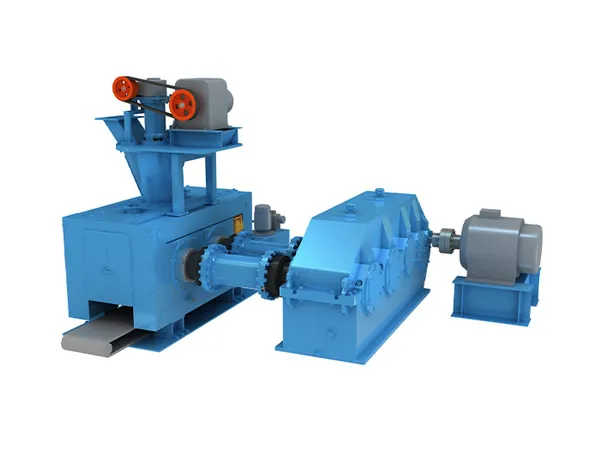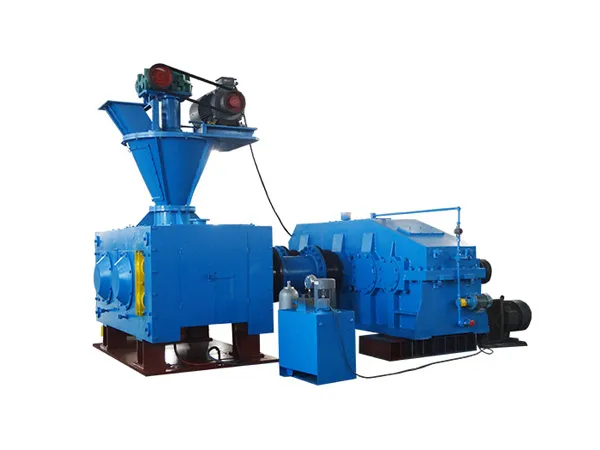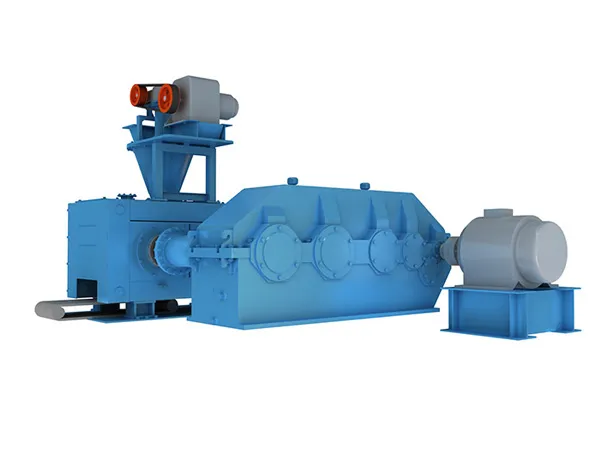

-
Products
-
Application


Briquetting machines, also known as briquette presses, are used to compress loose materials into compact, uniformly sized briquettes. These briquettes have a variety of applications, making briquetting a valuable process across several industries.

Biomass Briquettes: This is perhaps the most common application. Briquetting agricultural waste like sawdust, rice husk, sugarcane bagasse, corn stalks, groundnut shells, and forest residues into solid fuel briquettes. These briquettes are used for:
Heating Homes and Buildings: A sustainable and often cheaper alternative to wood, coal, or LPG for domestic heating.
Industrial Boilers: Providing heat for various industrial processes, such as steam generation.
Power Generation: Burning briquettes in power plants to generate electricity.
Cooking Fuel: Especially in developing countries, where wood and charcoal are primary cooking fuels. Briquettes can be cleaner-burning and more efficient.
Coal Briquettes: Pulverized coal fines, which are difficult to handle and burn efficiently, are briquetted for:
Household Heating: A more convenient and cleaner way to use coal for domestic heating.
Industrial Furnaces and Boilers: Providing consistent and reliable fuel for industrial processes.
Coke Production: Used as a precursor for coke production in metallurgical processes.
Charcoal Briquettes: Charcoal dust and fines, often generated during charcoal production, are compressed into briquettes for:
Barbecue Fuel: A clean-burning and long-lasting fuel source for grilling.
Shisha (Hookah) Charcoal: Producing specific types of charcoal for shisha smoking.
Metal Scrap Briquetting: Compressing metal turnings, chips, and swarf (from machining processes) into dense briquettes for:
Recycling: Making the metal scrap easier to handle, transport, and remelt, increasing recycling efficiency.
Volume Reduction: Significantly reducing the volume of metal waste, saving storage space and transportation costs.
Oil Recovery: In some cases, briquetting processes can recover cutting oils from the metal scrap.
Paper and Cardboard Waste: Briquetting paper and cardboard waste for:
Recycling: Making it easier and more cost-effective to transport and process for paper pulp production.
Fuel: (Less common) Used as a component in alternative fuel mixtures.
Plastic Waste: While less common due to challenges in processing, certain types of plastic waste can be briquetted for:
Recycling: Improving the efficiency of plastic recycling processes.
Alternative Fuel: (Less common, with environmental concerns) Used as a component in waste-to-energy systems.
Municipal Solid Waste (MSW): In some waste-to-energy applications, pre-treated MSW (after sorting and removal of recyclables) can be briquetted for easier handling and combustion.
Ore Fines Briquetting: Iron ore fines, manganese ore fines, and other mineral ore fines are briquetted for:
Steelmaking: Creating feedstock for blast furnaces and other steelmaking processes. Briquetting prevents the loss of valuable material and improves furnace efficiency.
Ferroalloy Production: Improving the handling and processing of ore fines used in the production of ferroalloys (alloys of iron with other elements, used as additives in steelmaking).
Direct Reduced Iron (DRI) Fines: DRI, produced in the direct reduction of iron ore, can generate fine particles that are difficult to handle. Briquetting these fines allows for easier transportation and use in steelmaking.
Mill Scale Briquetting: Mill scale, a byproduct of steel rolling, can be briquetted for recycling back into the steelmaking process.

Chemical Briquetting: Briquetting chemical powders and granules for:
Improved Handling: Making it easier to handle and transport chemicals, reducing dust and spillage.
Controlled Dissolution Rates: The shape and density of the briquette can influence the rate at which the chemical dissolves in a solution.
Specific Applications: Examples include fertilizers, pesticides, and other agricultural chemicals.
Pharmaceutical Briquetting: Similar to chemical briquetting, briquetting pharmaceutical powders for:
Tablets and Pills: This is related to tableting presses, but briquetting can be a pre-processing step in some pharmaceutical manufacturing.
Controlled Release: Formulating briquettes to control the rate at which a drug is released in the body.
Fertilizer Briquetting: Compressing fertilizer powders into briquettes for:
Ease of Application: Making it easier to spread fertilizer evenly and efficiently.
Controlled Release: Allowing for a slower and more sustained release of nutrients into the soil.
Reduced Dusting: Minimizing dust during application.

Volume Reduction: Reduces the volume of materials, saving storage and transportation costs.
Improved Handling: Makes materials easier to handle, store, and transport.
Enhanced Combustion: Briquetting provides a more uniform fuel source, leading to more efficient and cleaner combustion.
Recycling and Waste Management: Improves the efficiency of recycling processes and reduces waste sent to landfills.
Cost-Effectiveness: Can be a cost-effective alternative to traditional fuels or disposal methods.
Resource Conservation: Allows for the utilization of waste materials and byproducts.
Dust Reduction: Minimizes dust generation, improving air quality and reducing health hazards.
In summary, briquetting machines have a wide range of applications, primarily focusing on fuel production, waste management, and improving the handling of various materials across numerous industries. They play a significant role in promoting sustainable practices, resource conservation, and efficient industrial processes.

Official Agent of ZY MINING in Russia.
Please enter here.
Add: Luoxin Industrial Zone,Luoyang City,Henan Province P.R.C.
Tel: +86-379-67313306
E-mail: gloria@zyksjx.com